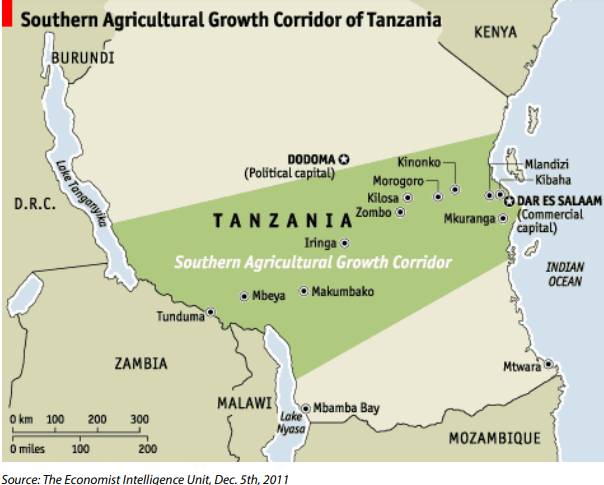Unraveling Africa’s Food Potential: Insights from Japhet Laizer on Private Extension Systems
By Neema Munisi, agribusiness expert
Africa has always been seen as a continent bursting with agricultural potential. Japhet Laizer’s article published in The Daily News, “Agriculture in Africa has the potential to satisfy not only its own domestic food but also those of the rest of the world,” serves as a profound testament to this promise.
The Agricultural Landscape in Africa
A closer look at the agricultural panorama reveals that agriculture isn’t just a means to an end. It’s the heartbeat of the continent. Integrating further into the agri-food chain and the global market, agriculture remains pivotal to Africa’s socio-economic fabric. As Laizer notes, the sector plays an undeniable role, especially in sub-Saharan Africa where it accounts for a significant chunk of the GDP.
But like every rose has its thorns, Africa’s agricultural sector faces a plethora of challenges. A rapidly growing population, rigorous global markets, and an incessant demand for quality all create a mosaic of hurdles that the continent grapples with.
The Crux of Agricultural Extension
If there’s one thing Laizer emphasizes, it’s the transformative power of agricultural extension. He observes, “Agricultural extension is a vehicle for modernizing, commercializing, and transforming agriculture in many sub-Saharan African countries.” These extension services are pivotal in imparting modern agricultural techniques to smallholder farmers, whose role in Africa’s food production is undeniably significant.
Yet, even as the spotlight on extension services for smallholder farmers intensifies, challenges persist. Laizer identifies some primary issues – limited resources, a dearth of awareness among farmers, and, more profoundly, the inadequacy in the sheer number of extension officers. These challenges aren’t mere inconveniences; they profoundly impact farmers both economically and socially.
The Gender and Youth Divide
A closer scrutiny of the extension systems reveals a deeply entrenched divide – that of access, particularly among women and youth. Laizer points out the staggering ratios of extension agents to farmers, bringing to light a glaring disparity. In Nigeria, for instance, the numbers speak for themselves. Laizer notes, “In Nigeria the current ratio of extension agents to farmers is between 1:5000 and 1:10000 with a total workforce of about 7000 public agents.”
It’s not just Nigeria. Tanzania grapples with similar issues, accentuating the dire need for a comprehensive system overhaul. The recommended ratio, as suggested by experts, hovers between 1:500 and 1:250. Such figures aren’t mere statistics. They are indicative of the quality and efficiency of advice farmers can access, ensuring better crop yields and improved livelihoods.
Beyond Seed Purchase: The Pillars of Support
One of the essential takeaways from Laizer’s insights is that farmers’ needs extend beyond mere seed purchases. He asserts, “Farmers need support beyond their purchase of seeds to adopt improved agricultural technologies to realize the potential of high-yielding crop varieties on their farms.”
This statement underscores the importance of technical knowledge. It’s not just about having the tools, but also knowing how to wield them effectively. From soil preparation to crop rotation, from pest control to harvest techniques – the gamut of farming activities requires a deep-rooted understanding of best practices.
The Emergence of the Private-led Extension Model
Recognizing the gaps left by public extension agents, the private sector has stepped up, as highlighted by Laizer. He illuminates the shift towards the private-led extension model, emphasizing the role of private sector actors in supplementing the extension and advisory services.
With the market teeming with competition, agricultural input companies are not only focusing on product promotion but also on farmer education. Companies are strategically placing demonstration plots at village centers, roadsides, and markets. These plots serve a dual purpose – they showcase product performance and serve as learning hubs for farmers.
The Game-Changing Role of Village-based Advisors (VBAs)
Laizer’s exploration of the role of VBAs is particularly enlightening. These self-employed farmers are trained in good agronomic practices, ensuring that knowledge dissemination is grassroots. By equipping them with both theoretical and practical skills, the goal is to foster sustainable farming practices that percolate throughout local communities.
Connected to a vast network spanning input companies, hub agro-dealers, traders, and even non-profit organizations, VBAs are not just advisors but also entrepreneurs in their own right. With opportunities to generate income and start their ventures, VBAs stand at the intersection of community development and personal growth.
The Digital Revolution in Agriculture
In the era of the Fourth Industrial Revolution, how can agriculture remain untouched? Laizer points to the ever-growing influence of digital technology in agriculture, emphasizing the role of Information and Communication Technology (ICT) in enhancing value-chain efficiencies. From marketing and product advertisement to e-extension, the digital sphere is reshaping agricultural paradigms.
The Way Forward
Laizer’s concluding remarks serve as a clarion call for collective action. He urges both public and private stakeholders to recognize the potential of the private-led extension model and scale it. The overarching aim? To holistically transform the food system, ensuring better yields, improved nutrition, reduced poverty, and food security.
To truly sustain its food system momentum, Africa must heed these insights. And as Japhet Laizer suggests, the private extension systems could very well be the golden key to unlock Africa’s vast agricultural potential.
+Neema Munisi is a leading expert in agribusiness and gender-focused food systems. She is also a trainer on business-related topics. For consultancy, write to her. Email: neema.munisi80@gmail.com


